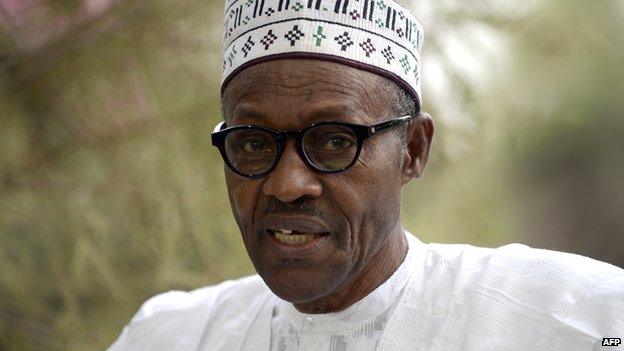Nigeria profile - Leaders
- Published

Muhammadu Buhari has a reputation of being tough on corruption
President: Muhammadu Buhari
Muhammadu Buhari swept to a historic election victory in March 2015, becoming the first opposition candidate to win a Nigerian presidential poll.
A former military ruler, Mr Buhari defeated incumbent Goodluck Jonathan by three million votes.
Mr Jonathan's People's Democratic Party had dominated Nigerian politics since the end of military rule in 1999, but its supremacy was shaken by the formation of the Mr Buhari's All Progressives Congress party in 2013.
The APC in particular capitalised on Mr Jonathan's failure to deal with endemic corruption and the Boko Haram Islamist insurgency gripping northern Nigeria.
A Muslim Fulani from northern Nigeria, Muhammadu Buhari in 1983 helped to oust elected President Shehu Shagari to become the first head of Nigeria's second period of military rule, lasting until 1999.
His regime sought to combat crime and corruption, but was also accused of serious rights abuses. In 1985, he was himself overthrown by Gen Ibrahim Babangida.
Since the restoration of democracy in 1999, Mr Buhari stood three times for the presidency before winning in 2015.
He has distanced himself from military rule, promising to respect democracy and govern as a civilian leader. He scored a major diplomatic success in June 2015 when neighbouring countries agreed to Nigeria commanding a joint force to counter Boko Haram, rather than rotating the command among themselves.
He has enjoyed less success in restoring Nigeria's economic fortunes, which have suffered from low world oil prices, and allowed the naira currency to float in mid-2016 in an attempt to tackle inflation and boost investment.
- Published31 March 2015